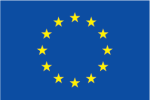For me, at the time, it was not hard to speak up and do something about it. But what if the other student was a friend or a more popular student? What if there were very good reasons for him or her to act the way he or she did? Would I have acted in the same way? I am all too aware that research integrity is a grey area and that it is important to educate those in the research field. From young learners at primary school to highly experienced researchers. In my opinion it is not just a matter of ‘knowing’ what is the right thing to do, but also experiencing it and keeping the discussion going, it is a social matter.
Today, I work at Elevate as an instructional designer. In this role I can express my passion for high quality online and blended learning solutions for students and professionals in Health and Life sciences. At Elevate, we strive to stimulate learners to do more than just read and exchange information. Instead our aim is to refine their knowledge. From that point of view, it is important that learners are not limited to reading the information they think they should know. There are greater possibilities, especially with technology and social media, to deepen knowledge when interacting with others.


Leave a Reply